
Cost
How Much Does a Bathroom Addition Cost?
09.26.2025
Our New Year savings event is here: Get up to $6,500 off your project today (terms apply).

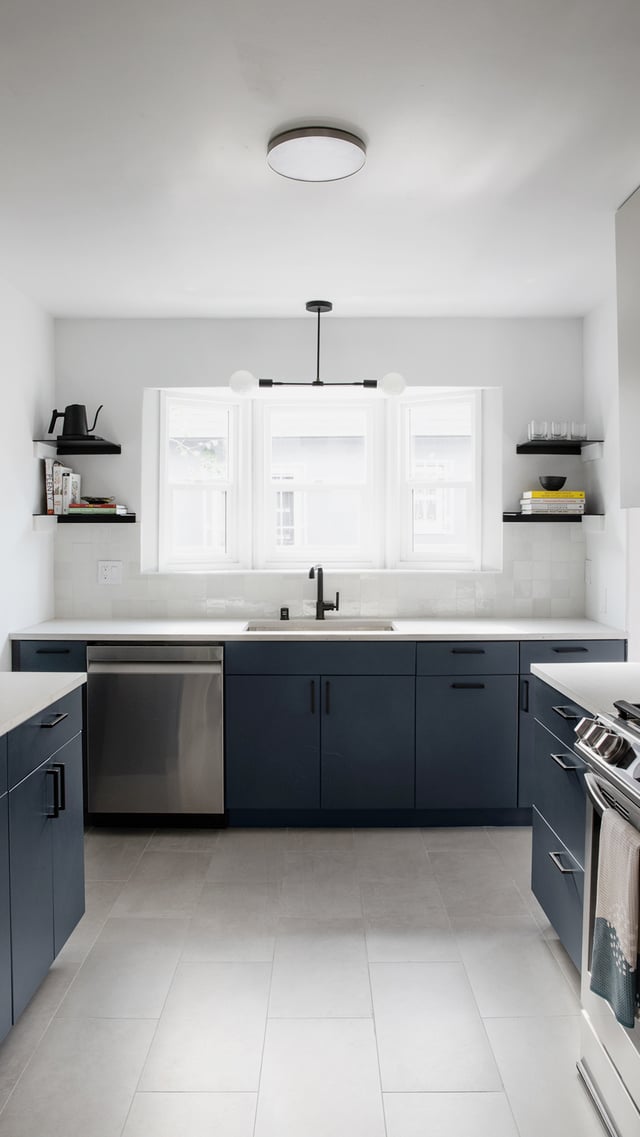
In This Article
Planning to remodel your Los Angeles home? Get ready to make a meaningful investment—not just of your time and effort, but in your home's future! Whether you're envisioning a sleek kitchen transformation, upgrading your bathroom with stylish finishes, or handling those exciting, unexpected touches (because they always add a little surprise), taking on a renovation in LA can feel like planning a major event—only this time, you're trading the DJ for beautiful drywall and lasting value. We have the insights you need to map out your expenses and keep the process as smooth as possible. Ready to explore what a home renovation in LA could run you? Let's dive in and break it down, step by step, to help you stay on budget and stay sane.
Design a Home That’s Uniquely Yours
Block can help you achieve your renovation goals and bring your dream remodel to life with price assurance and expert support.
Get Started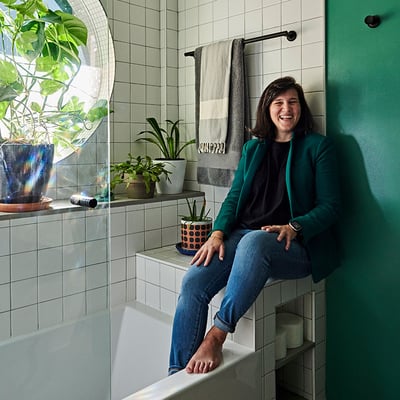
Overview of home renovation costs
When it comes to home renovation costs in Los Angeles, there's a wide range depending on what you're planning. If you're just doing some basic updates—think fresh paint, new floors, and small cosmetic tweaks—you're looking at about $100 to $300 per square foot. But if you're dreaming bigger, like tearing down walls or going for high-end finishes, that price can jump to $400 to $800 per square foot or even more. For specific remodels, kitchen renovations tend to run between $24,000 and $43,000 while redoing a bathroom can set you back anywhere from $34,000 to $60,000. Of course, these are ballpark figures, and costs can shift depending on the materials you choose and any surprises like plumbing or electrical issues that pop up along the way. To make sure you're getting the best deal, it's always smart to gather a few quotes from different contractors. Luckily, we make comparing prices easy and finding the right fit for your project.
Learn More: How to Start Planning a Home Renovation
The total cost of your Los Angeles home renovation can fluctuate depending on a few key factors. Here's what you need to consider:

Labor typically accounts for the largest portion of your renovation budget—around 60%. The cost will depend on how complex your project is and what type of professionals you need. Most renovations require a mix of experts, such as general contractors, electricians, plumbers, and possibly specialists. The more intricate your project, like removing walls or installing high-end features, the higher the labor costs. So, if you're aiming for big transformations, expect the labor bill to reflect that ambition.
Thinking about hiring a designer? While it adds to your budget, having a professional can streamline the process and prevent costly errors. Designers can assist with everything from selecting materials to creating efficient layouts. The good news is that design services can be tailored to your needs—whether you're looking for full project oversight or just help choose the right finishes, there's a solution that fits your vision and budget.
Materials will generally consume about 30% of your overall budget, but this figure can vary based on your choices. Each decision impacts your bottom line, from flooring and countertops to cabinets and fixtures. Material costs differ significantly depending on quality and availability, so balancing your preferences with practicality is crucial. A tip: be prepared for surprises! Stock shortages and price increases can happen, so having alternative options lined up is a good idea.
It's easy to overlook the smaller expenses, but they add up. Things like demolition, cleanup, fixtures, and hardware often fly under the radar yet can noticeably impact your final budget. It's important to factor in these seemingly minor details to avoid unpleasant surprises later on.
Transparent Pricing You Can Trust

No matter how carefully you plan, renovations can reveal hidden issues, such as water damage or an outdated electrical system, and unexpected problems can throw off your budget. Setting aside around 10% of your total costs for these surprise expenses will help keep the project on track and your stress levels low. When the unexpected happens, you'll be glad you planned.

When it comes to home renovations in Los Angeles, the price tag can vary significantly depending on how far you want to go. A non-gut renovation—where you’re making more cosmetic changes like painting, updating flooring, or refreshing the kitchen and bathroom—will usually cost between $100 and $300 per square foot. It’s perfect if you want to freshen up your space without knocking down walls or reconfiguring rooms.
But if you’re going all-in with a gut renovation, expect to shell out quite a bit more. Gutting your home means you’re stripping everything down to the studs and making structural changes, like moving walls or even redoing the plumbing and electrical systems. In LA, that can push your costs to anywhere from $400 to $800 per square foot. So, if you’re dreaming of a full transformation, be prepared for the extra investment—but also for the chance to fully customize your home to fit your vision.
When it comes to permits and formalities for home renovations in Los Angeles, there’s no one-size-fits-all answer—it really depends on where you live and the type of work you're planning. For smaller projects like kitchen or bathroom updates that don’t involve structural changes, you’re looking at a permit cost between $500 and $1,000, commonly referred to as “express permits.” However, if you’re taking on a larger project—like a full remodel, structural changes, or adding a new room—permit costs can jump significantly, starting at $5,000 and reaching up to $20,000, especially in areas like Santa Monica. While the permit process might seem like a bit of a headache, it’s essential to factor these fees into your overall budget from the start.
When planning your renovation in Los Angeles, one key element that can influence your budget is whether you're working on a "dry" or "wet" space. This difference isn't just terminology—it can substantially affect your final bill. Here's what you need to know:
Renovating wet areas like kitchens, bathrooms, or laundry rooms tends to come with a higher price tag. Because these spaces deal with water and moisture, they require specialized materials and labor, including plumbing, waterproofing, and tiling. Costs increase due to the need for durable, water-resistant finishes and the expertise required to install them. It's essential to hire professionals who know their way around these projects, as mistakes can lead to costly fixes down the road.

On the other hand, dry spaces like living rooms, bedrooms, or home offices are usually more budget-friendly. Since there's no need to worry about plumbing or water damage, the work tends to be simpler—think updating paint, flooring, or lighting. Renovating dry areas is generally more cost-effective because it involves less complexity compared to the detailed work needed for wet spaces.
When planning a home renovation in Los Angeles, it's essential to think about your heating and cooling options. The cost can vary depending on the system you choose and your home's unique needs. Here's what to keep in mind:
Installing a new HVAC system can be a major investment. Basic setups may start at around $2,000, but more intricate systems can easily run into the tens of thousands. The final cost depends on the system type and your home's size and layout.
Larger homes in Los Angeles often rely on central HVAC systems, which can be more expensive due to the necessary ductwork and larger unit sizes. However, they provide the advantage of maintaining consistent temperatures throughout your home, which is key for staying comfortable year-round.
Split systems or mini-splits are a solid option for those looking for flexibility and efficiency. These are ideal for cooling or heating-specific rooms and are relatively easy to install, especially if your home lacks existing ductwork. They can also help lower energy costs in the long run, making them a more budget-friendly solution overall.
If you're aiming for a high-end touch, radiant heating is a luxurious choice. This system involves placing heating elements under floors or within walls, providing the ultimate comfort of warm floors during colder months. Though it's more expensive to install, it's an excellent choice for those willing to invest in extra comfort.
It's important to factor in not only installation but also long-term operating costs. While energy-efficient systems may come with a higher upfront price, they can significantly reduce your utility bills over time, making them a wise choice for the long haul.

Planning a realistic budget is key to keeping your home renovation project on track and minimizing unexpected costs. A clear budget helps you focus on what's important while spotting areas where you can save. Here's how to approach it:
Before you get started, take a close look at your finances and determine how much you're comfortable spending. It's easy to dream big, but having a clear budget from the outset helps prevent overspending and keeps your renovation in check.
Decide which parts of your home need the most attention. Whether updating the kitchen, redoing the bathroom, or improving energy efficiency, focusing on your top priorities allows you to direct your budget toward the most important elements and avoid wasting money on less critical items.
For better organization, split your budget into categories such as labor, materials, design fees, permits, and a contingency fund. A general guideline is to allocate 60% of your budget for labor, 30% for materials, and keep 10% for unforeseen expenses.
Start with the essentials, such as plumbing, electrical systems, and structural work. These foundational updates should come before any aesthetic improvements to ensure your home is safe and functional.
No matter how well you plan, unexpected issues can arise. It's smart to set aside 10-20% of your budget to cover any surprises that come up along the way, so you're ready for whatever pops up without breaking the bank.
Learn More: Demystifying the Costs of a Home Renovation Project
Choosing the right contractor is one of the most important steps in ensuring your renovation runs smoothly. Your contractor will be your reliable go-to person, handling everything from construction to problem-solving as the project unfolds, providing you with a sense of security and relief.
Finding the perfect contractor in a city as large as Los Angeles can be overwhelming, but Block makes it easier by connecting you with up to three highly qualified professionals from our vetted network. Each contractor in our network has been carefully evaluated to ensure they meet strict criteria, including:
You’ll have the chance to meet these contractors during a site visit, easily compare their proposals, and find the perfect fit for your renovation needs. Get started with a free consultation today!

Written by Block Renovation
What is the average cost per square foot for a home renovation in Los Angeles?
How long does a typical home renovation take in Los Angeles?
Do I need a permit for my home renovation in Los Angeles?
Can I live in my home during the renovation?
What hidden costs should I watch out for?
How much does it cost to renovate a bathroom in Los Angeles?
What's the process for getting a renovation permit in Los Angeles?
How much does it cost to hire an architect or designer for a renovation project in Los Angeles?
How can I keep my renovation project on budget and on schedule?

Renovate confidently with Block
Easily compare quotes from top quality contractors, and get peace of mind with warranty & price protections.
Thousands of homeowners have renovated with Block

4.5 Stars (100+)

4.7 Stars (100+)

4.5 Stars (75+)

Cost
How Much Does a Bathroom Addition Cost?
09.26.2025
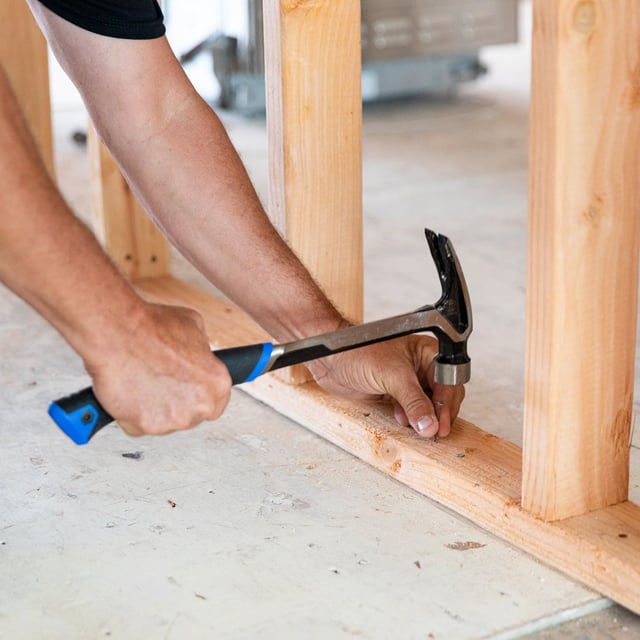
Cost
Calculating the Cost of Your 12x24 Addition
09.18.2025
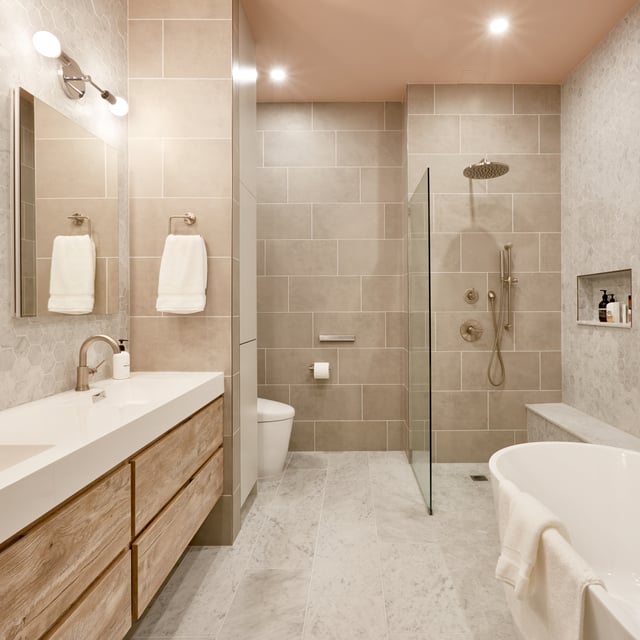
Cost
10x10 Bathroom Remodeling Costs
09.18.2025

Cost
The Average Cost of a Jacuzzi Bath Remodel—and How to Save
09.18.2025
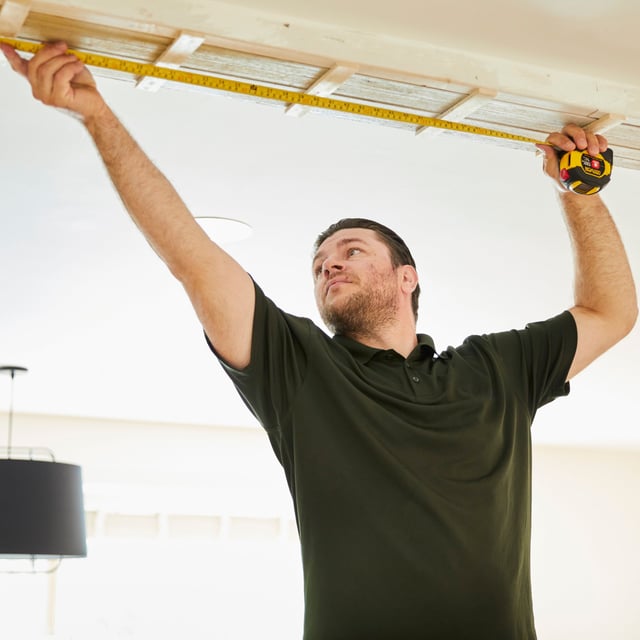
Cost
Ceiling Installation Costs: Repairs & Replacement Pricing
09.05.2025
Renovate confidently